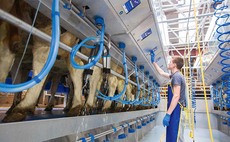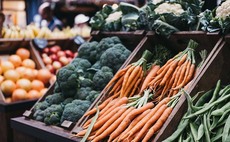Author profile
Dairy
Dairy analysts were in a bullish mood at the ’I Can’t Believe It’s Not the Semex Conference’
Farm Life
A post-Brexit Oxford at the start of 2021 would have made for endless entertainment watching the reaction of conference attendees to George Eustice’s gene editing consultation unveiling.
Livestock
A pregnant Highland heifer was mauled to death by a Rottweiler dog which had got loose without its owners’ knowledge.
Farm Life
To use a spot of football jargon, the Brexit negotiations benefited from their very own version of ’Fergie-time’, that fabled bit of extra-extra time that would seemingly appear at the end of Manchester United games when the Red Devils were managed by Sir Alex Ferguson. The games would go on longer than expected but the desired result, for Sir Alex at least, was achieved in the end.
Farm Life
Hindsight is a wonderful thing. It is also a cliche that we can lump together with many of the other phrases which have become part of standard terminology in 2020, such as ’these are unprecedented times’, or ’stay safe’. But it is true that nobody, if they are being honest, could have stood on the cusp of the new decade and predicted that this year would have unfolded as it has done.
Farm Life
Has 2020 been the year when British consumers have re-found their love of local?
Farm Life
Another week, another strategy document, this time in the form of the five-year AHDB ’change strategy’.
Farm Life
If Defra’s latest document is anything to go by, the path of agricultural transition will be beset by instances in which bureaucratic ideology butts up against the realities of farming and food production.
Farm Business
While for the most part agriculture has avoided the worst effects of Covid-19, minds are certainly starting to focus on the breadth of change heading the industry’s way in 2021, namely Brexit and the shifting sands of farm support.
Livestock
Picture the scene. It is the end of 2021 and there has been a no-deal Brexit, while Basic Payments have also started to reduce in line with Government plans to move towards a more environmentally-based farming support structure.



 21 January 2021
•
3 min read
21 January 2021
•
3 min read








